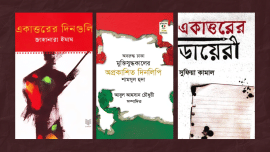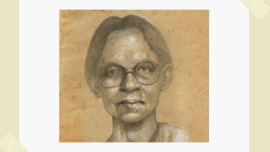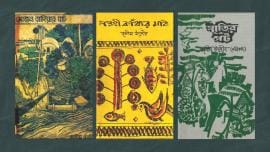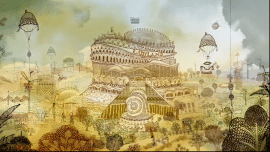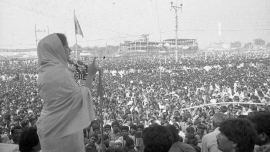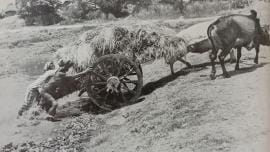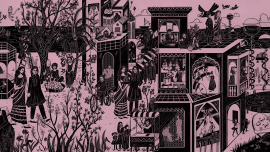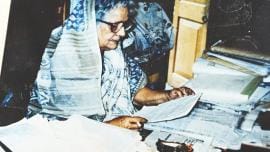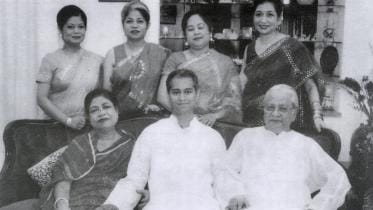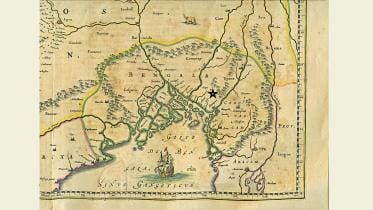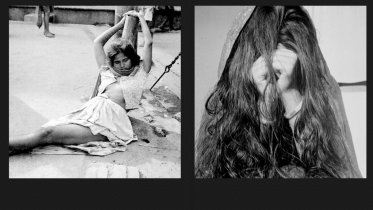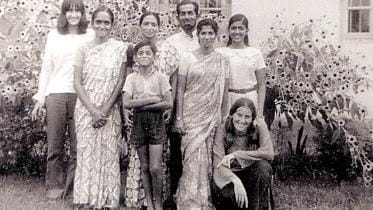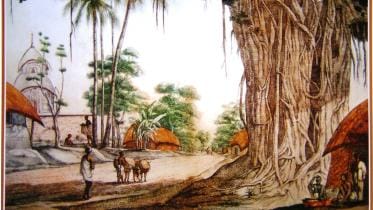Living in occupied Dhaka: Diaries from 1971
6 January 2026, 13:20 PM
Slow Reads
Ila Mitra: A symbol of indomitable courage
6 January 2026, 02:00 AM
Slow Reads
In Focus / In a city called Elias
4 January 2026, 18:00 PM
Slow Reads
The making of folk poet Jasimuddin
4 January 2026, 08:34 AM
Slow Reads
“In Rokeya’s writing, I see a universal truth”
1 January 2026, 11:17 AM
Slow Reads
In Focus / The untold history of why Khaleda Zia entered politics
30 December 2025, 11:53 AM
Slow Reads
THE SECOND LIFE OF A PHOTOGRAPH / Zainul Abedin, Naib Uddin, and the making of a classic
29 December 2025, 08:58 AM
Slow Reads
In Focus / A journey through Bangladesh’s Islamic inscriptions
28 December 2025, 18:00 PM
Slow Reads
Why Rokeya’s two-hour workday utopia remains urgently relevant
28 December 2025, 12:49 PM
Slow Reads
In Focus / Nurjahan Begum at 100: A life for women’s voices
25 December 2025, 10:20 AM
Slow Reads
Living in occupied Dhaka: Diaries from 1971
Ekattorer Dinguli, Ekatturer Diary, and Abaruddha Dhaka remind us that the Liberation War did more than give birth to a nation
6 January 2026, 13:20 PM
Ila Mitra: A symbol of indomitable courage
Ila Mitra transformed suffering into resistance, becoming one of the subcontinent’s most enduring symbols of courage.
6 January 2026, 02:00 AM
In a city called Elias
In a city called Elias, there is no beginning and there is no end—“it lives imperishably.” The past and the dead are as vital as the rank waters of the Buriganga.
4 January 2026, 18:00 PM
The making of folk poet Jasimuddin
Jasimuddin remembered singing songs to himself. He could not remember the words but remembered putting his own words into some of them.
4 January 2026, 08:34 AM
“In Rokeya’s writing, I see a universal truth”
A Spanish animator reimagines Sultana’s Dream
1 January 2026, 11:17 AM
The untold history of why Khaleda Zia entered politics
Why did Khaleda Zia, a typical housewife who had become widow at a critical age in terms of Bangladesh's culture, join politics?
30 December 2025, 11:53 AM
Zainul Abedin, Naib Uddin, and the making of a classic
Zainul flows into Naib Uddin, and Naib Uddin flows back into Zainul, again and again. But their relationship is not limited to subject matter alone.
29 December 2025, 08:58 AM
A journey through Bangladesh’s Islamic inscriptions
Inscriptions serve as a missing link to the past, offering many historical clues otherwise unavailable elsewhere.
28 December 2025, 18:00 PM
Why Rokeya’s two-hour workday utopia remains urgently relevant
Rokeya’s utopia asserts that the highest priority of science is not maximising output, but maximising human freedom and leisure.
28 December 2025, 12:49 PM
Nurjahan Begum at 100: A life for women’s voices
Begum had to shift from its office from one country to another, witness Partition, Liberation War, change of regimes, change in printing technology, but its editor, Nurjahan Begum, never wavered.
25 December 2025, 10:20 AM
Anti-Liberation War forces have taken advantage of the failure of democracy
In conversation with Rehman Sobhan, one of Bangladesh’s most distinguished economists and a celebrated public intellectual.
24 December 2025, 18:00 PM
Kazi Fazlur Rahman, a civil servant and an intellectual giant
Kazi Fazlur Rahman was a Member of Bangladesh’s first Interim Government in 1991
15 December 2025, 09:57 AM
Chittagong, before Chittagong: An early history
In the remote east of a region once called Harikela lies Chittagong, an upper Bay of Bengal port city at the juncture of the medieval Bengal, Arakan and Tripura kingdoms.
14 December 2025, 18:00 PM
The untold story behind 1971’s two most haunting photographs
Because the image was published, Naib Uddin’s life came under threat.
12 December 2025, 02:00 AM
What Begum Rokeya knew about changing Bengali Muslims from within
Liberation is not about what one wears or does not wear but about the values they live by
7 December 2025, 18:00 PM
Living in a time of fear: The rise of digital inquisition in Bangladesh
The pervasive violence — both physical and symbolic — in our times is contagious.
4 December 2025, 08:33 AM
A British witness to Bangladesh genocide: Val Harding’s 1971 story
In April 1971, at the age of 24, Val Harding was volunteering as a nurse at a hospital in Kathmandu, Nepal, when she first heard of the atrocities on March 25 in Dhaka and the fight for the Liberation of Bangladesh.
30 November 2025, 18:00 PM
Early North Bengal: A (re-)creation and a lone journey
Naturally, ENB, which was mentioned as Puṇḍravardhana-bhukti in the Gupta epigraphs, remained mostly understudied.
30 November 2025, 02:00 AM
My experience as an editor of a Bangla magazine
We wanted Edesh-Ekal to say something to all citizens and at the same time to maintain a strong focus on women and their problems
28 November 2025, 08:21 AM
‘Struggle’: Noazesh Ahmed and his first masterpiece
All his life, Noazesh remained immersed in the enchantment of art.
24 November 2025, 08:08 AM



